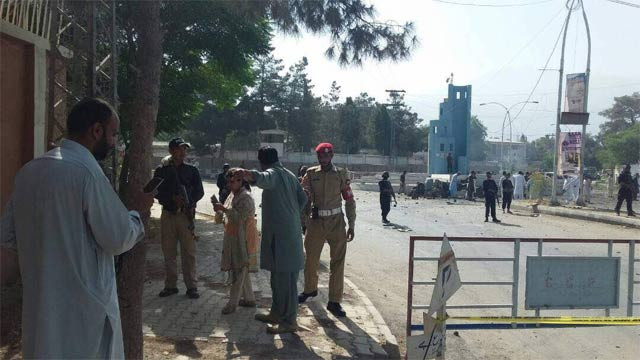Quetta bombed again
The disturbing reality is that the security environment in Balochistan continues to deteriorate

A police official is said to be among those killed. PHOTO: EXPRESS
All the usual condemnations swiftly followed. A spokesman for the provincial government, Anwarul Haq Kakar, blamed India for the bombing but was unable to offer any supporting evidence for his statement. It will be recalled that Indian spy Kulbhushan Jadhav currently under sentence of death operated almost exclusively in Balochistan, thus an Indian connection cannot be entirely ruled out. That said there are any number of groups in Balochistan that are actively targeting the provincial government and its security agencies. There have been a string of fatal and non-fatal incidents in recent months — two navy men killed in Jiwani, 10 labourers butchered again near Gwadar and three security officials injured by an IED near Kalat — and there seems little prospect of the incidence of terrorist acts diminishing.
The disturbing reality is that the security environment in Balochistan continues to deteriorate. The security services are no more on top of the challenges than they were six months or a year ago. Banned groups continue to mount complex operations. The borders with Iran and to a lesser extent Afghanistan have flashpoints that erupt regularly and what is obviously and painfully missing is any sense of joined-up thinking and action from the federal and provincial governments as to how best to bring peace and stability. Balochistan is drifting, a victim of political inertia.
Published in The Express Tribune, June 24th, 2017.
Like Opinion & Editorial on Facebook, follow @ETOpEd on Twitter to receive all updates on all our daily pieces.
















COMMENTS
Comments are moderated and generally will be posted if they are on-topic and not abusive.
For more information, please see our Comments FAQ